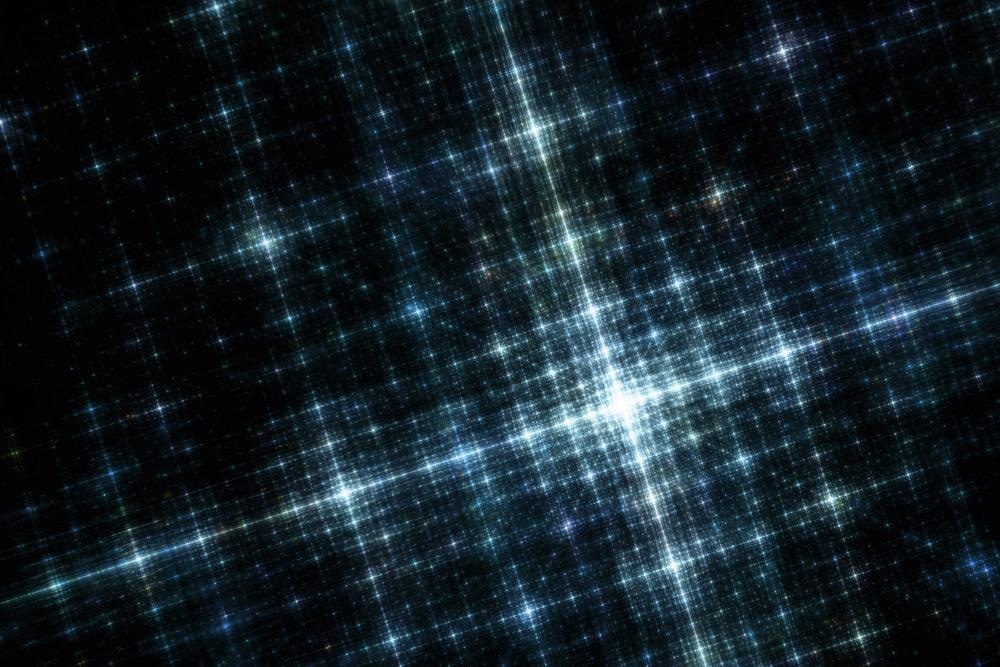In 2021, South China Morning Post reported that China had used its experimental quantum communication network to protect its power grid – the largest in the world – from security threats. Communications between remote command centers and the grid were established via the ‘quantum satellite’ “Mozi,” which encrypts information by manipulating phenomena of quantum physics.

Image Credit: R.T. Wohlstadter/Shutterstock.com
The Mozi or Mocius satellite, which launched in 2016, relayed light particles between a national emergency command center in Beijing and the grid network in Fujian, in southeast China. The satellite secures the information passing through it – and protects it from being intercepted or manipulated – with entanglement-based quantum key distribution.
China is developing the technology as future protection against hacking, especially on its infrastructure networks and against communication transmitted over long distances and without optical fibers. Mozi is part of a quantum communication network that China is now using to protect infrastructure like its electric grid, according to reports.
Pioneering Quantum Encryption in Space
Mozi, or Micius, named after an ancient Chinese philosopher, has been at the cutting edge of quantum encryption since it launched in 2016. In 2020, it was reported to have achieved long-range secure communication over 1,120 km via satellite – a world first.
Mozi encrypts information by emitting pairs of entangled photons – quantum particles that respond to each others’ stimuli even when they are separated over long distances. For example, changing the direction of one entangled spinning particle’s rotation will cause its entangled pair to change direction as well. This phenomenon appears to be unaffected by the distance between the two particles, although practical applications are only recently becoming viable.
Today, most quantum cryptography uses entanglement-based quantum key distribution to encrypt information. This creates a key for encoding messages in one entangled particle (a photon, in the case of satellite-based quantum communications,) while the other particle contains the decoding key. Particles can be sent to different people while remaining entangled, but nobody can intercept them.
Mozi first tested this experimentally by producing entangled photons and sending them to ground stations 1,200 km away from one another on land. This demonstrated that the technology could cause entanglement that sustained through Earth’s atmosphere without disruption.
In 2017, scientists used the satellite to send cryptographic keys to scientists in observatories in Vienna, Austria, and near China’s capital. This experiment established a totally secure connection between the two nation’s science academies – located 7,400 km from each other.
The Mozi link sent encoding and decoding keys to both observatories that were connected by quantum entanglement. Once the connection was established with the satellite, the observatories could encrypt their communications and send them to each other through normal satellites, knowing that interception and decryption were impossible.
In 2020, the laboratory behind Mozi’s achievements – led by China’s “Father of Quantum Mechanics” Pan Jian-Wei – published more research demonstrating the satellite sending streams of entangled photons to the two original observatories 1,200 km apart simultaneously. This development means that the system could be used to establish a direct link between stations on Earth.
The development included upgrades to the keys distribution mechanism, as well as protection against malicious attacks such as using light signals to block the telescopes’ connection.
Quantum Experiments at Space Scale
Mozi is a part of a large-scale Chinese research project called Quantum Experiments at Space Scale (QUESS). QUESS is a mission designed to test and prove new methods in quantum encryptions, perform quantum optics experiments, and develop quantum teleportation technology.
The mission has cost approximately $100 million so far, but costs could rise further with plans to launch more satellites and operate a global quantum communications network by 2030.
The Future of Secure Communication
Securing long-distance communication is a key step toward a future “quantum internet,” network connected and protected by manipulating quantum particles and features of their nonmechanical physics like quantum entanglement and quantum superposition. For many researchers, a key benefit of a “quantum internet” is the added protection and security it could offer to all users. In theory, it is not possible to break quantum encryption with the current (and likely future) capacity of computer processing power.
As well as potentially securing a public internet in the future, quantum communications is also being developed to give state security forces a military-technological advantage.
QUESS launched the first craft to space that had the ability to generate entangled photons on board, although previous missions had already demonstrated the possibility of transmitting single photons between satellites and observatories on the ground. The National University of Singapore and University of Strathclyde (U.K.) had also successfully created correlated (if not fully entangled) pairs of photons in space using a cubesat satellite.
But China’s Mozi satellite, and the expected QUESS network, remain at the forefront of pioneering quantum communications developments. The latest announcement shows China using the system in a real-life security application, rapidly progressing toward a full quantum communication network.
References and Further Reading
Chen, S. (2021). China uses quantum satellite to protect world’s largest power grid against attacks. South China Morning Post. [Online] Available at: https://www.scmp.com/news/china/science/article/3159234/china-uses-quantum-satellite-protect-worlds-largest-power-grid?module=perpetual_scroll_0&pgtype=article&campaign=3159234.
Ren, J.G., P. Xu, H.L. Yong, et al (2017). Ground-to-satellite quantum teleportation. Nature. Available at: https://doi.org/10.1038/nature23675.
Šiljak, C. (2020). China’s quantum satellite enables first totally secure long-range messages. The Conversation. [Online] Available at: https://theconversation.com/chinas-quantum-satellite-enables-first-totally-secure-long-range-messages-140803.
Xing, L. (2016). China launches world's first quantum science satellite. Physics World. [Online] Available at: https://physicsworld.com/a/china-launches-worlds-first-quantum-science-satellite/.
Yin, J., Y.H. Li, S.K. Liao, et al (2020). Entanglement-based secure quantum cryptography over 1,120 kilometres. Nature. Available at: https://doi.org/10.1038/s41586-020-2401-y.
Disclaimer: The views expressed here are those of the author expressed in their private capacity and do not necessarily represent the views of AZoM.com Limited T/A AZoNetwork the owner and operator of this website. This disclaimer forms part of the Terms and conditions of use of this website.